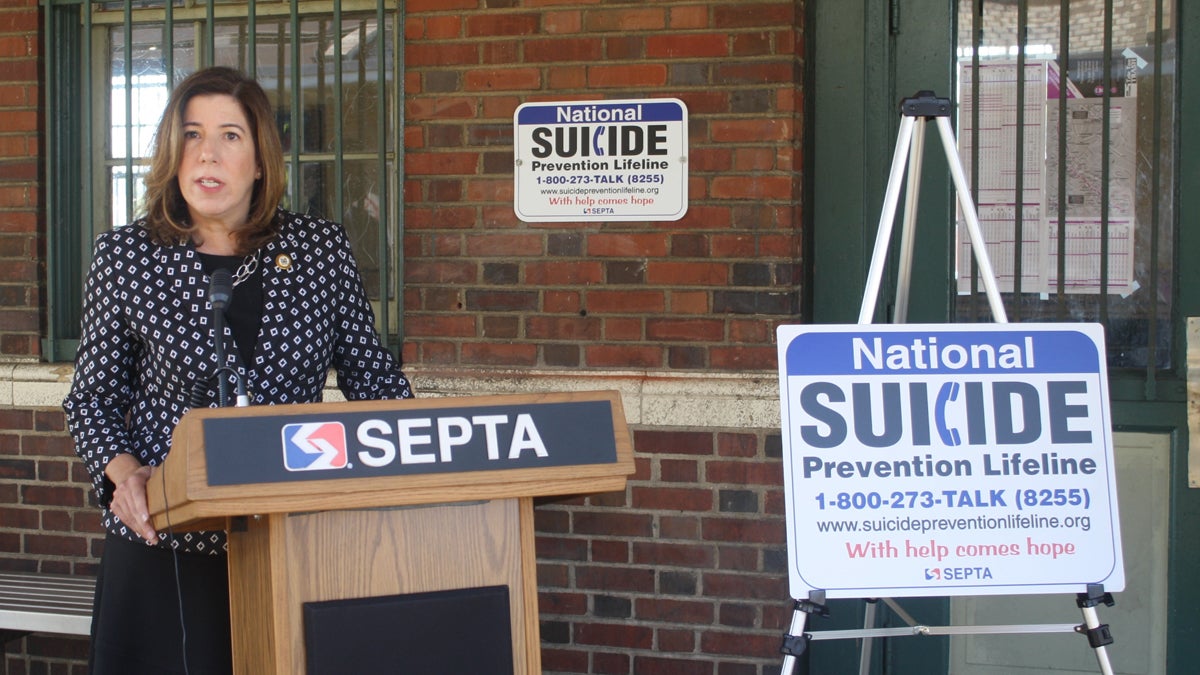Suicide prevention signs in SEPTA stations part of attitude shift, advocates say

Montgomery County Commissioner Leslie Richards. (Image courtesy of MCES)
SEPTA and Montgomery County Emergency Services, a mental health services provider, have launched a program to put National Suicide Prevention Lifeline information in all of the transit authority’s stations.
Representatives from both organizations came together at the Norristown Transportation Center Wednesday to unveil the blue and white signs. The awareness campaign is an extension of SEPTA’s railway safety programs, said Scott Sauer, director of system safety. “Today, that awareness campaign evolves to include people who may be seeking additional help.”
Suicide is a heavy topic – and concerns about contagion can close down conversations about suicide prevention. Tony Salvatore, director of suicide prevention at MCES, said that “normalizing” conversations about suicide is an important step in suicide prevention.
“What I’m seeing here is a realization that suicide is a reality. It’s kind of like fire prevention,” Salvatore said. “It’s everybody’s business, and anyone who can do something to prevent it should get into it.”
Putting resources in a place where someone might be making a plan — such as a train station — helps because it “puts [information] in front of people so they can do something.”
“We have to get people comfortable with the idea that they can ask for help,” added Salvatore. “This has got to be seen as a health issue more than a mental health issue.”
Temple University sociologist Matt Wray agrees. He said it’s a myth that someone who wants to commit suicide will find a way no matter what.
“The vast majority of people who survive an attempt, don’t try again,” said Wray. Which means suicides are preventable. “If you stop an event, you can save a life,” he said.
Studies compiled by Harvard’s School of Public Health support the idea that timely interventions – and means reduction – work. According to its website, about half of all people who attempt suicide spend less than a day deliberating.
SEPTA officials report about half of each year’s transit deaths are deemed suicides.
NJ Transit initiated a similar program in its rail stations last year. MCES previously puts signs for its helpline on the Dannehower Bridge. While it’s difficult to quantify impact, no one has been removed from the bridge for attempting suicide since the signs appeared.
To reach the National Suicide Prevention Lifeline, dial 1- 800-273-TALK (8255).
WHYY is your source for fact-based, in-depth journalism and information. As a nonprofit organization, we rely on financial support from readers like you. Please give today.

